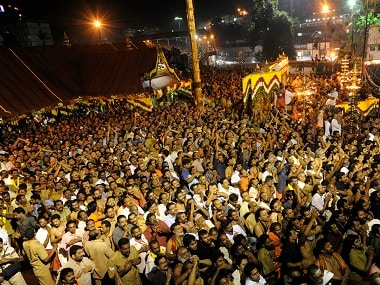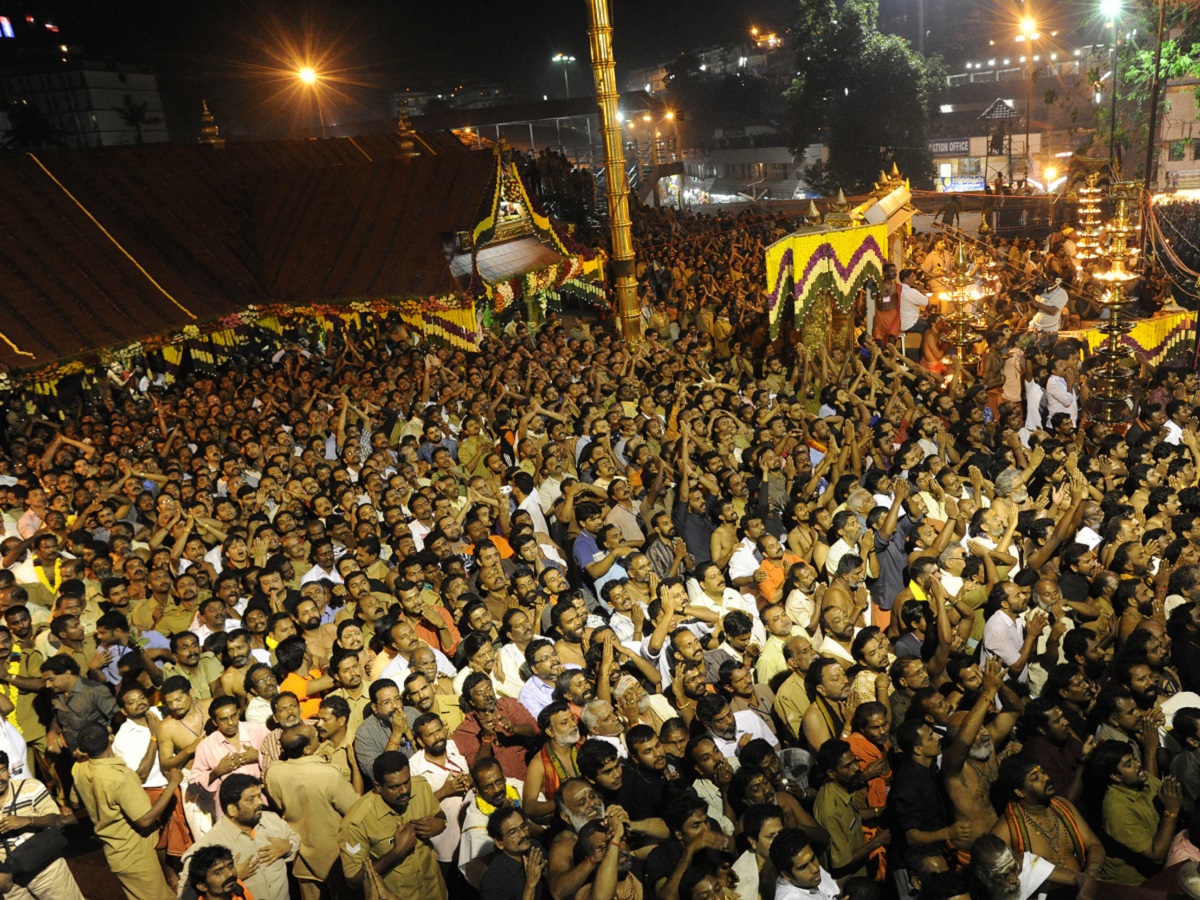The U-turn taken by the Communist Party of India (Marxist)-led Left Democratic Front government in the Supreme Court regarding the entry of women at the Sabarimala shrine has come as a huge shock to the progressive sections in Kerala. The pro-women stand that the previous LDF government had taken in 2008 had strengthened a public interest litigation (PIL) filed by the Delhi-based Indian Young Lawyers’ Association, challenging the ban on women between the ages of 10 and 50 at the temple located on a hilltop in the Western Ghats of Pathanamthitta district. But, much to the dismay of the petitioners, the new Pinarayi Vijayan government backed the previous UDF government’s affidavit that opposed the plea when the bench of Justices Dipak Misra, C Nagappan and R Banumathi asked government counsel V Giri whether there was any change in the state’s stand after the change of government. He said he had no instructions from the new government on the issue but emphasised that the court can go into the constitutional issues. However, the CPI-M has now taken a divergent position. [caption id=“attachment_2891640” align=“alignleft” width=“380”]  The Travavancore Devaswom Board has initiated a signature drive against the entry of menstruating women. AFP file image[/caption] Party state secretary Kodiyeri Balakrishnan said that the party was in favour of entry of women of all age groups to the hill shrine. “The CPI-M is of the view that women should be allowed in all temples, including Sabarimala. The government would file a fresh affidavit in the apex court after taking into account all opinions on the issue,” he said. However, Law Minister AK Balan said the government had limitations in backing the demand even though it is against gender-based discrimination. The government has to factor age-old traditions and sentiments of believers who do not want to change it, he said. “Being in power, we have to address all aspects involved in the issue. Personally, I do not think that this is a matter that can be resolved through the legal route. It can be solved only through consensus. We need to build this through discussions,” he added. Sharing this view was Devaswom minister Kadakampally Surendran, who suggested an open referendum for building a consensus. He said this was more important than court orders. Interestingly, the state-controlled Travavancore Devaswom Board, which administers the temple, has already initiated a signature drive against the entry of menstruating women in the temple. The board plans to submit a memorandum to Prime Minister Narendra Modi with one crore signatures before the commencement of the next pilgrim season in November. It has sought the support of the Ayyappa Seva Sangam units, a spiritual body of devotees of Lord Ayyappa, the deity at the Sabarimala temple, in various states for making the signature drive a success. Kerala Mahila Congress president Bindu Krishna, an advocate and a strong proponent of women’s entry at Sabarimala, said the attempt to build a consensus on the issue through such opinion poll will only favour the conservatives since they have made the women traditionally believe that a violation of the custom could invite the wrath of Lord Ayyappa. She told Firstpost that this may be one of the reasons why women in the state were not coming forward to support the movement. Curiously, a major player behind the current legal battle is a Muslim lawyer. The counsels for TDB have been repeatedly pointing this out in the apex court while opposing the petition. The Congress leader believes that the divergent stand taken by the LDF government on the issue is dubious. They say the CPI-M is trying to appease both progressive and conservative sections in light of the recent changes in the political equations in the state. “The LDF, which had raised a big hue and cry against the UDF’s stand on the issue, has changed its own stand following the move by the Bharatiya Janata Party to consolidate the Hindu vote bank by forging alliances with various Hindu outfits,” Bindu said. “The LDG government’s fresh position is a clear deviation from their previous stand. This is pure opportunism. When they were in the opposition, they were fighting against gender discrimination. Now that they are in power, they are doing the opposite,” the Congress leader added. She feels that the LDF government’s decision to stick to the affidavit filed by the UDF may complicate the judicial process since the apex court had taken up the petition filed by the Lawyers’ Association in 2006 for active consideration after the Achuthanandan government supported the petitioners’ plea. The court had made a distinction between faith and Constitutional rights after the LDF government affidavit termed the long-standing demand for entry for all women in the temple in keeping with the times. The ban was enforced under Rule 3 (b) of the Kerala Hindu Places of Public Worship (Authorisation of Entry) Rules, 1965 in tune with a custom followed by the temple for the past 1,500 years. The Kerala high court had upheld the ban in 1991 and directed the state-controlled Travancore Devaswom Board (TDB), which administers the temple, to implement it. The custom is based on the belief that Lord Ayyappa is a celibate and the presence of menstruating women could shake his celibacy. The chief priest (tantric) of the shrine, who is the last word on temple rituals, considers the presence of menstruating women in the temple a sin. The tantri says women, who have not attained menopause, cannot preserve the purity during the 41-days ’tapas’ (austerity) that devotees observe prior to the pilgrimage. The petitioners also challenged the rule saying that it was violative of Articles 14 (equality before law), 25 and 26 (freedom of religion) of the Constitution. They contended that the ban was a sheer sexist discrimination. The apex court had referred the plea to a three-judge bench in 2008, saying it involved substantial legal issue. TDB president Prayar Gopalakrishnan, who had kicked up a controversy with his statement that women will be allowed to enter the temple only after a machine to “check their purity of women” is invented, has viewed the volte face by the new LDF government as a result of the realisation that it was not easy to break an age-old custom through judicial process. “The apex court had drawn a distinction between faith and the constitutional rights after the previous LDF government had supported the petition. Now that the new government has given weightage to the sentiments of the believers, I am sure the court would respect their feelings,” he added. “The previous LDF government had failed to appraise the court properly about the practices followed at Sabarimala since centuries. The court made the observations without understanding the basis of the temple’s rituals and the specialty of the ‘perennially celibate’ deity,” he said. “The divinity of the shrine comes from the practices. We will protect it at all cost,” Gopalakrishnan said, adding that they were confident about convincing the court when it takes up the petition for hearing again in November. The court has indicated referring the petition to the five-judge Constitution bench since it believes that the temple has no constitutional right to prohibit the entry of the women pilgrims to offer worship. The progressive sections are of the opinion that the restrictions at Sabarimala are due to taboos prevailing in the society over menstruation rather than faith and customs. They are confident that the highest court in the country will appreciate this and undo the injustice to the women.
Law Minister AK Balan said the state government had limitations in backing the demand even though it is against gender-based discrimination
Advertisement
End of Article


)

)
)
)
)
)
)
)
)



